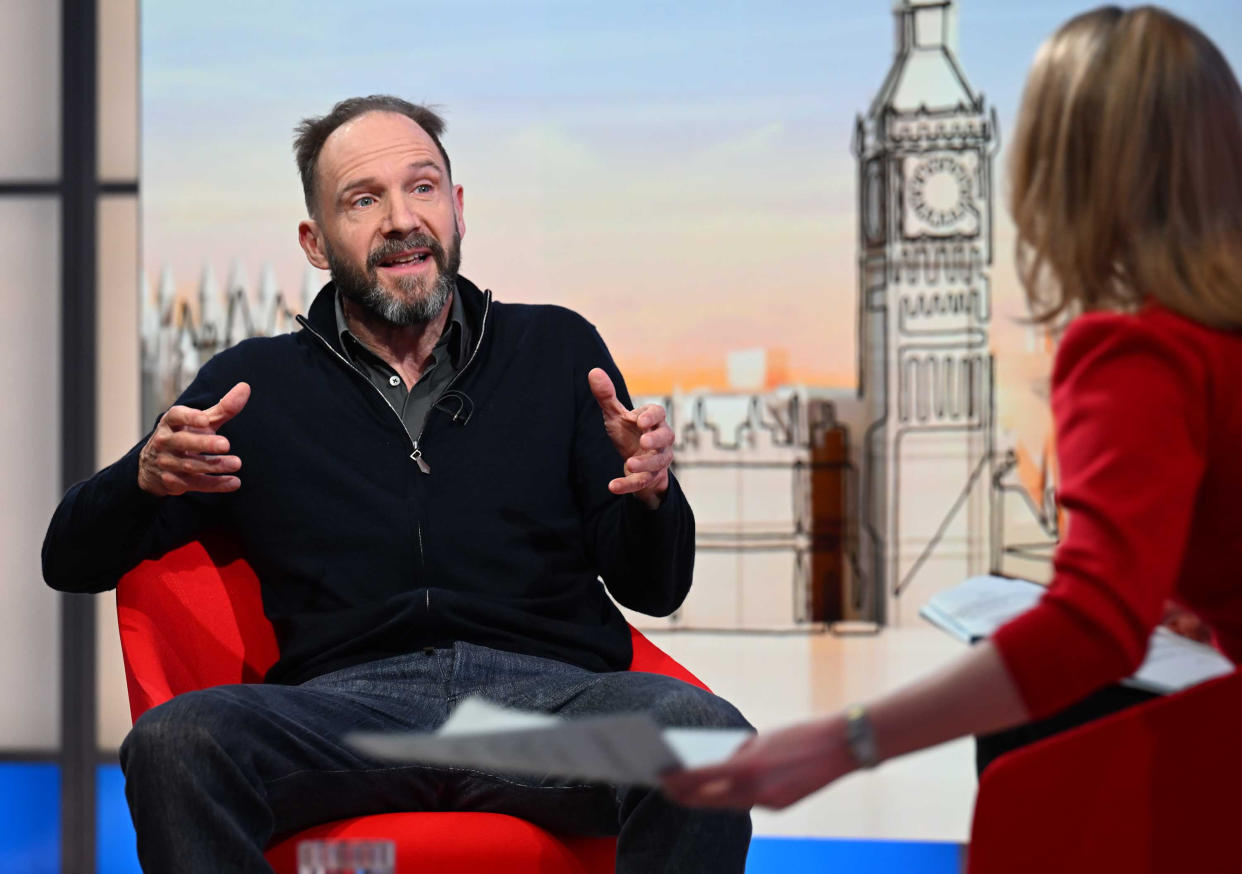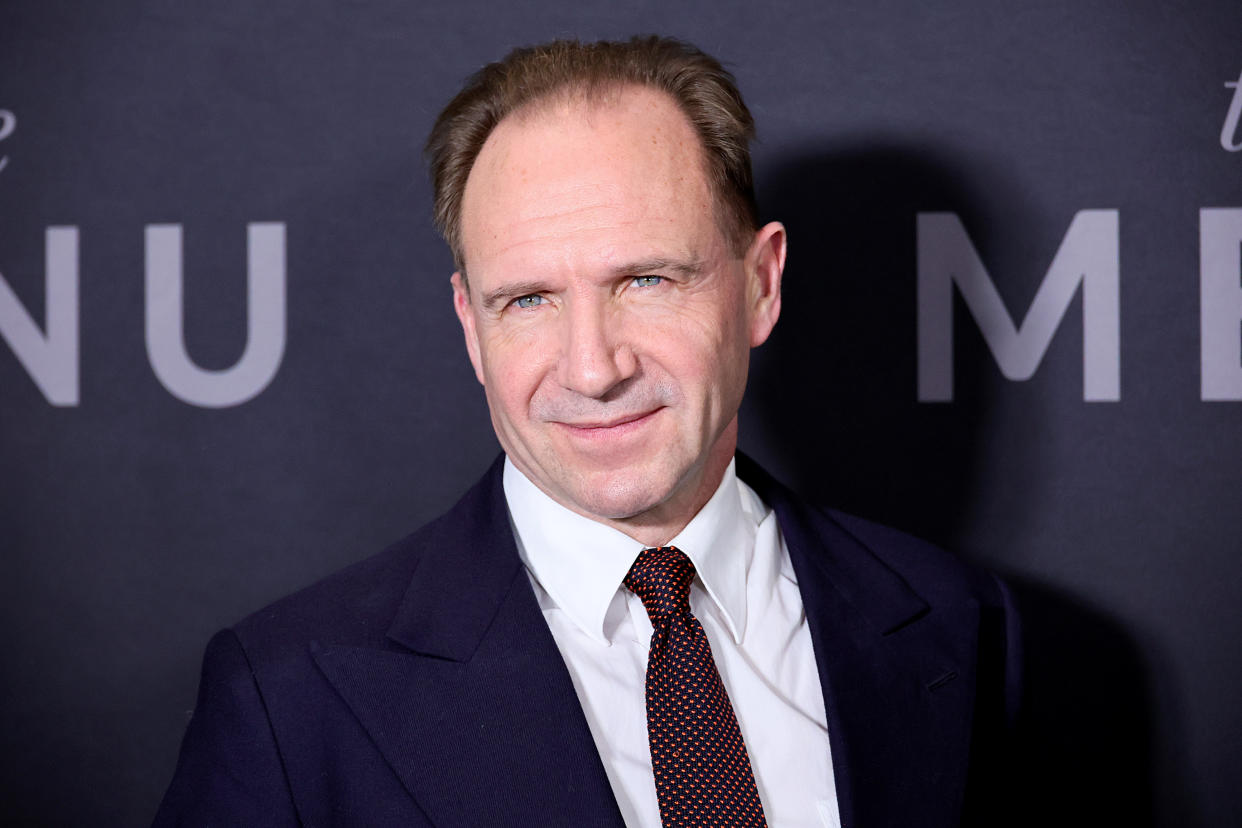Ralph Fiennes calls for theatre trigger warnings to be scrapped

Actor Ralph Fiennes has called for trigger warnings to be scrapped, saying theatre audiences have "gone soft".
Trigger warnings let audiences know if there is upsetting content. But Fiennes, who is starring in an immersive touring production of William Shakespeare's Macbeth, said people should be "shocked and disturbed" by theatre.
Fiennes, speaking about the debate on the BBC's Sunday With Laura Kuenssberg programme, was asked if audiences have "gone too soft".
"I think they have," he said. "I think we didn't used to have trigger warnings. I mean, there are very disturbing scenes in Macbeth, terrible murders and things. But I think the impact of theatre should be that you're shocked and you should be disturbed. I don't think you should be prepared for these things and when I was young, we never had trigger warnings for shows."

Recommended reading
Fiennes agreed trigger warnings should be "got rid" of, while making clear physical warnings for issues such as strobe effects should still be flagged.
He added: "Shakespeare's plays are full of murders, full of horror. As a young student and lover of theatre, I never experienced trigger warnings telling me: 'By the way, in King Lear, Gloucester's going to have his eyes pulled out.'
"It's the shock, the unexpected: that's what makes... theatre so exciting."
What are the arguments for and against trigger warnings in theatre?
Trigger warnings for theatre productions have becoming increasingly common in recent years.
Some theatres have trigger warning information sections on their websites for productions they are running.
For example, the Almeida Theatre in north London shares a "production content guide" detailing "specific content that may impact audience members" in upcoming productions. Among those are "thematic triggers" for King Lear, the Shakespeare production mentioned by Fiennes in his BBC interview on Sunday.
Another company, Sheffield Theatres, says trigger warnings are "about supporting audience members who would benefit from additional information about the show and would like to understand any trigger warnings".
However, a number of actors have spoken out against this trend.
Last year, after it emerged Chichester Festival Theatre had forewarned audience members its production of The Sound of Music touched on “the threat of Nazi Germany and the annexation of Austria”, Simon Callow said of such warnings: "There is a fundamental failure to grasp what the theatre is: not a model for behaviour but a crucible in which we look at what it is to be human."
He added it is "perfectly clear that what happens on the stage is performed by actors... and that the whole thing is an act of imagination".
Sir Ian McKellen also bemoaned trigger warnings, telling Sky News last year: "Outside theatres the audience is warned 'there is a loud noise', 'there are flashing lights', 'there is a reference to smoking', 'there is reference to bereavement'. I like to be surprised by loud noises and outrageous behaviour on stage."


